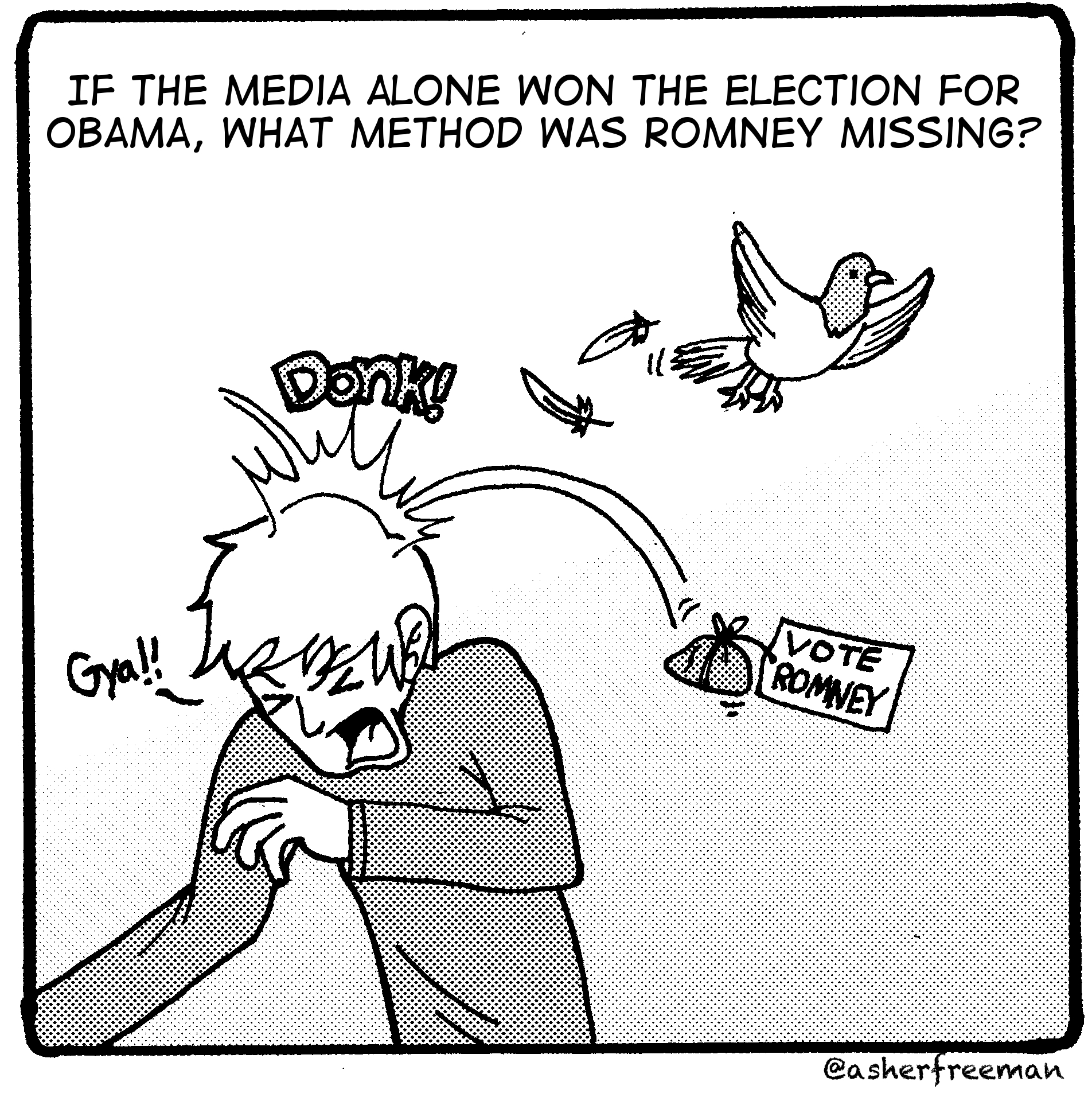 In the aftermath of the election a lot of speculation has come from all sides as to exactly why the election wasn’t as close as it could have been.
In the aftermath of the election a lot of speculation has come from all sides as to exactly why the election wasn’t as close as it could have been.
And it wasn’t.
All the polls had Romney and Obama in a dead heat. Many politicos and analysts were predicting the various ways that they would tie.
And then they didn’t.
President Obama took 332 electoral college votes and 62.6 million of the popular votes.
Mitt Romney won 206 electoral votes and a little more than 59 million popular votes.
Not exactly the tie we all expected.
Why is this?
Some no doubt will say ballot stuffing, lament a stolen election, chalk it up to any number of problems with Romney himself or Republicans in general or claim some grand revolution and return to political sanity.
It’s not really for any of those reasons. It’s not really for any one reason either, but if we had to name one factor it would have to be the media.
Not “the liberal media” or the “conservative propaganda machine” or whatever people want to call the hardworking journalists miraculously bringing information and images from hundreds of miles away to your couch while you eat pizza bagels.
No, the sum total of the media that makes up the way we communicate with eachother. Social media, news media, electronic media etc. etc. ad nauseam.
It would not be unfair to say that media, and the way that it was used, helped clinch the election for President Obama.
It all comes down to effectiveness.
Marc Thiessen, Washington Post columnist, said essentially the same thing.
In his piece “Obama’s ‘Moneyball’ campaign,” he outlines how the Obama ground machine, codename “Narwhal,” far overshot the Romney machine “ORCA.”
Essentially, Obama’s worked and Romney’s didn’t.
Which isn’t surprising.
According to the Pew Research Center, about one-fifth of the electorate is between the ages of 18-25. That’s the demographic that Obama most effectively courted in 2008 and 2012, and it’s an increasingly wired section of America.
It’s also a section of America not well represented in the major polls.
Polling organizations use land lines to poll voters and people of the 18-25 cohort are much less likely to have landlines. That means that national polls and poorly run in-house polls for candidates don’t count our generation very well.
Except, of course, for Obama’s.
David Axelrod and David Plouffe, Obama’s two election gurus, deserve the lion’s share of recognition for this.
They connected their candidate to a generation of uncounted and overlooked voters, and we turned out overwhelmingly twice in favor of him (this is of course speaking in general terms — everybody knows how most of Baylor’s politics flow).
Anyone who ever signed up for one of those tempting dinners with the president or donated money even once to the Obama campaign can remember the slew of emails urging them to donate or tell their friends to sign up.
As annoying as these emails may have been, they obviously didn’t turn off many voters, and in the end the machine worked. Obama was re-elected.
Contrary-wise, the giant machine that was supposed to buoy Romney to victory on an election day surge failed spectacularly.
The site was down, the volunteers were in disarray and the phones weren’t ringing.
For someone who touted his business leadership and organization skills, Romney didn’t seem able to run a simple phone bank in Colorado.
This reflects poorly on his ground crew, but is also shows the age of the Republican approach.
The Democrats, especially Obama, are the party of the here and now, the new and the future.
The Republicans will have to catch up if they want to have any hope of a president any time soon.





